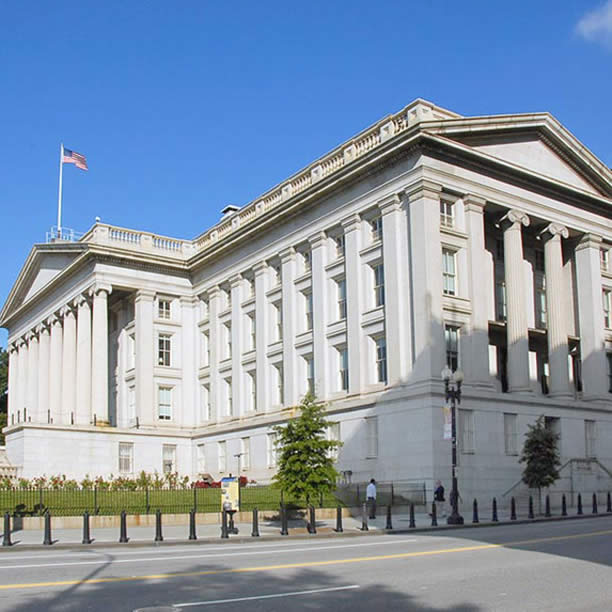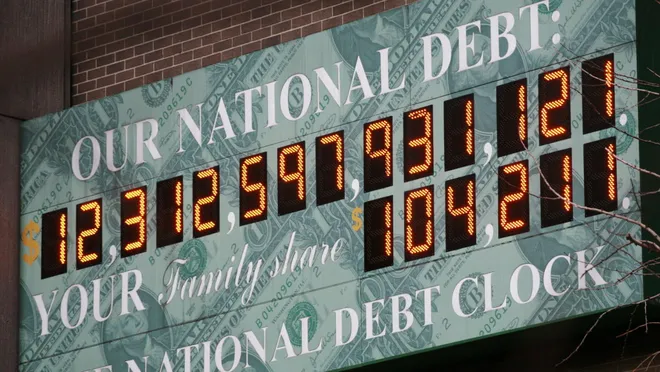The United States is teetering on the brink of a financial disaster as President Donald Trump celebrates the passage of his Big Beautiful Budget Bill, which will add a staggering $3 trillion to an already astronomical national debt of $37 trillion. This bill, steeped in tax cuts that disproportionately favor the wealthy, raises urgent questions about the sustainability of our economic policies and the very foundation of democratic governance itself.
Debt Levels Reach Unimaginable Heights
As reported by U.S. Treasury Fiscal Data, the national debt has surged over the past year, increasing by $2.424 trillion. This relentless upward trajectory is not merely a number; it signifies a potential crisis that could undermine essential services and social programs that low-income communities rely on. The very fabric of our civil rights may fray under the weight of such economic mismanagement.
Global Repercussions of U.S. Borrowing Practices
The implications of this debt are not confined to our borders. The rising skepticism surrounding U.S. borrowing is reflected in the declining value of the dollar—down 10% against the pound and 15% against the euro this year. As economist Mohamed El-Erian notes, the world is keenly aware that the dollar is “overweight,” and while alternatives exist, they are not scalable enough to counterbalance the dollar’s dominance. This creates a precarious situation where the global economy remains shackled to U.S. fiscal irresponsibility.

Southeast Corner Treasury Building, Treasury and the Capitol ...
Potential Solutions Are Problematic
In the face of this burgeoning crisis, experts like hedge fund manager Ray Dalio warn that the U.S. is at a critical juncture. The potential responses to this debt crisis—drastic government spending cuts, substantial tax hikes, or even a default on loans—are all fraught with peril. Cutting the budget deficit from its current 6% to 3% may stave off immediate danger, but such measures could eviscerate essential social services and further entrench inequality, disproportionately affecting marginalized communities.
Printing Money Fuels Inflation and Inequality
Another avenue, as seen in the aftermath of the 2008 financial crisis, involves the Federal Reserve printing more money to buy up government debt. While this may provide temporary relief, it risks igniting inflation and exacerbating the wealth gap, benefiting asset owners while those reliant on wages face diminished purchasing power. This is a classic example of how economic policy often ignores the realities of social justice.

National debt is a looming threat could hamstring US government
Defaulting on Our Obligations Is Not an Option
The prospect of a U.S. default is chilling, as it would disrupt the global financial system, making the 2008 crisis seem trivial in comparison. The “full faith and credit of the U.S. Treasury” has long been the bedrock of global economic stability. A failure to honor these obligations would not only jeopardize the economy but would also send shockwaves through communities that depend on government support.
As we navigate this precarious economic landscape, it is imperative that we recognize the intersection of fiscal policy and civil rights. The consequences of reckless borrowing and spending are not abstract; they manifest in the lives of everyday people, particularly those from marginalized backgrounds who are often left to bear the brunt of economic miscalculations. Now, more than ever, we must advocate for a budget that prioritizes equitable growth and social justice, rather than one that enriches the elite at the expense of our most vulnerable citizens.







![[Video] Gunfire between Iraqi security forces and Sadr militias in Baghdad](/_next/image?url=%2Fapi%2Fimage%2Fthumbnails%2Fthumbnail-1768343508874-4redb-thumbnail.jpg&w=3840&q=75)
